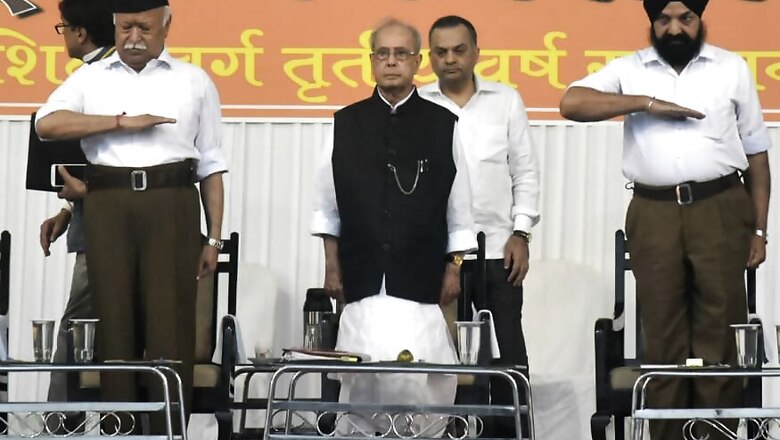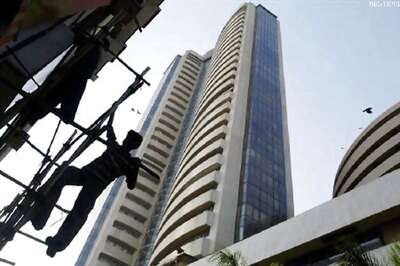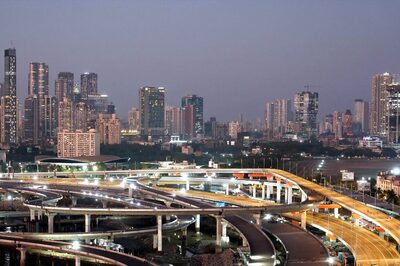
views
New Delhi: As chief troubleshooter in the UPA government, Pranab Mukherjee was the most sought after minister by allies and journalists alike.
His encyclopedic memory - the then Finance Minister once recalled during his evening interaction with a journalist - was tenaciously honed by a disciplined regimen of mental exercises he performed since childhood.
It would be naive to believe the import of Pranab Babu accepting the RSS invite to attend the third year cadet passing out parade at Nagpur would be lost on anyone, let alone the former President with a vast and rich experience in public life.
A lot has been written about the content of the speech delivered by Mukherjee at Reshimbagh ground last week. Some commentators averred the former President showed mirror to the RSS in its own den. Others have interpreted its content as an antidote to the concept of nationalism propounded the Sangh, strains of which can be found in MS Golwalkar's ‘We or Our Nationhood Defined’.
A close look at Pranab Mukherjee's farewell speech to the joint sitting of Parliament at the time of demitting office shows the former President has spoken on the same values of tolerance and plurality in the past as well. Surely, the import of a speech made from the highest pedestal of parliamentary democracy by the then sitting President of India is more than the one at RSS Headquarters. If need be, a similar point could have been made at a function at Mavalankar Hall or any other auditorium in Delhi.
In the larger socio-political context, contents of Mukherjee’s speech and the underlying message were overwhelmed by his presence at the venue. Damage for the Congress was perhaps done the day he accepted the invite.
For the RSS, Pranab Babu’s presence at the Reshimbagh ground would go down in annals as an inflection point in its protracted efforts to break new ground. In fact it is part of the larger attempt to engage and indulge the centrist political space in the Indian polity being vacated by the Congress in the last 10 years.
The strength of the Congress party, with a centrist approach, lay in its ability to take both the Left and the Right of the Centre along. The decisive political positioning towards the Left in the last one decade has restricted maneuvering space for the grand old party. It has been further cramped by competitive politics for minority votes.
This ideological positioning of the Congress in the last one decade got manifested in party’s tally plummeting to 44 in the last general elections. The Left parties since 1967 have won anything between 30 to 60 seats in the Lok Sabha and that has been representative of their ideological space in the polity thus far.
Being a centrist party, Congress has since independence successfully co-opted many parallel streams and leaders. It’s a long list, and that has precisely been its strength.
The RSS now is looking for a space in the same constituency. In the perception battle, a stride towards the center is also one away from the ultra-right or the fringe.



















Comments
0 comment